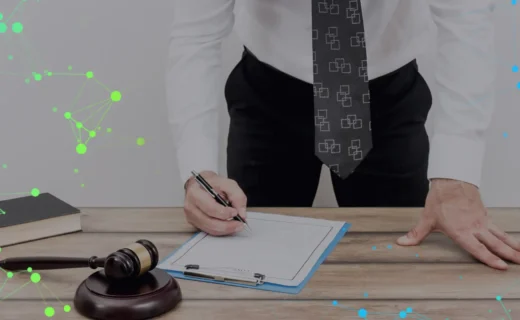Appeal of Administrative Detention and Delivery to TCC and SP
Appealing administrative detention and delivery to the Territorial Recruitment and Social Support Center (TCC and SP) is an important procedure for protecting citizens’ rights. This includes filing complaints with relevant authorities or appealing to the court if the detention or delivery is carried out in violation of the law. The appeal ensures the legality of state actions and prevents abuses, maintaining trust in Ukraine’s legal system.
Definition of Administrative Detention and Delivery to TCC and SP
Administrative detention is a short-term restriction of a person’s freedom carried out by authorized bodies, such as the police or military, to maintain public order and safety. Detention can occur in cases of suspicion of an administrative offense or to ensure the person’s presence during the consideration of an administrative case.
Delivery to the Territorial Recruitment and Social Support Center involves the forced or voluntary direction of individuals to the TCC and SP to fulfill duties related to military service or mobilization. This can include:
- undergoing a medical examination;
- training or performing other tasks necessary to maintain the country’s defense capability.
The Importance of Protecting Citizens’ Rights in These Situations
Protecting citizens’ rights during administrative detention and delivery to the TCC and SP is extremely important for ensuring justice, legality, and trust in state institutions. Key aspects of this process include:
- compliance with current legislation and preventing arbitrariness and abuse of power by state bodies;
- protection of citizens from illegal or unjustified actions that may violate their rights and freedoms;
- maintaining transparency and clarity in detention and delivery procedures;
- respect for human dignity;
- preventing conflicts between citizens and state bodies.
Qualified legal protection of citizens’ rights ensures that all people, regardless of their status or circumstances, receive equal treatment and a fair consideration of their cases.
Legal Consequences of an Improperly or Not Compiled Administrative Detention Protocol
If the administrative detention protocol is compiled with violations or not compiled at all, the detention may be declared illegal. This leads to the release of the detained person and the annulment of all related legal consequences.
A citizen detained with violations of established procedures has the right to demand compensation for material and moral damage caused by illegal detention. Officials who committed violations during the compilation or untimely compilation of the administrative detention protocol may be held administratively liable. This may include disciplinary measures such as reprimand, dismissal, or even criminal liability in cases of serious violations.
Evidence collected during unlawful detention may be deemed inadmissible in court. This can significantly affect the outcome of an administrative or criminal proceeding. In addition, improperly compiled or uncompiled detention protocols undermine public trust in law enforcement and the justice system as a whole. This inevitably leads to social tension, an increase in complaints, and appeals against law enforcement actions.
Procedure for Compiling an Administrative Protocol – How It Happens and How It Should Happen
The procedure for compiling an administrative protocol is as follows:
- An official, such as a police officer, identifies the fact of an administrative offense. They document the offense, collecting evidence, explanations from witnesses, and victims, if any.
- The next step is to establish the identity of the offender. The police officer checks identity documents, and in the absence of documents, the identity is established using other methods, such as databases.
- The official compiles the protocol on-site or at the law enforcement agency. The protocol indicates: the date, time, and place of compilation, information about the offender (full name, place of residence), the essence of the administrative offense, the normative act providing for liability for such an offense, the offender’s explanation (optional), the signatures of the offender and the official who compiled the protocol.
- The official is obliged to explain the offender’s rights and obligations and to provide copies of the protocol. The protocol, along with all collected materials, is sent to the competent authority (court or administrative commission) for consideration.
The administrative protocol must be compiled in accordance with current legislation, specifically the Code of Ukraine on Administrative Offenses. The protocol compilation process should be transparent, respecting the rights and freedoms of the offender. The protocol must be compiled immediately after identifying the offense to ensure the prompt consideration of the case. The offender has the right to familiarize themselves with all case materials, provide explanations, submit petitions, and complaints. All entries in the protocol must be clear and understandable, without corrections and errors, with mandatory signatures of the official and the offender.
Legislation Regulating Administrative Detention
Administrative detention in Ukraine is regulated by several normative legal acts:
- The Code of Ukraine on Administrative Offenses (CUAO). Articles 261, 262, 263, 264.
- The Law of Ukraine “On the National Police”. Articles 32, 34.
- The Constitution of Ukraine. Article 29.
Citizens’ Rights During Detention
- Citizens have the right to know the reason for their detention and to have access to information about their rights and obligations.
- Citizens have the right to legal assistance and consultation. They can contact a lawyer or other representative if they consider it necessary.
- If necessary, citizens have the right to medical assistance if the detention lasts longer than a certain time or there are signs of deteriorating health.
- During detention, the use of physical violence or worsening of detention conditions without legal grounds is not allowed.
- Citizens have the right to appeal administrative detention in court if they believe their rights have been violated.
- Citizens have the right to communicate with relatives or close persons and to notify them of their detention.
Violations That May Serve as Grounds for Appeal
Grounds for judicial appeal of administrative detention at TCC and SP may include the following violations:
- Detention without legal grounds or in violation of the established procedure.
- Lack of or violation of the detention protocol, incorrect documentation, or absence of necessary signatures.
- Failure or refusal to provide the detained person with information about their rights and obligations.
- Refusal to allow contacting a lawyer or other representative, incorrect information about the right to legal assistance, or obstruction of its provision.
- Use of physical violence or cruel treatment, inadequate detention conditions that violate the person’s rights and dignity.
- Refusal to allow contact with relatives or close persons, obstruction of the ability to notify them of the detention.
- Abuse of power by officials, unlawful actions violating legislation or internal regulations.
Judicial Appeal with Dextra
If you need professional assistance in appealing administrative detention, contact the legal specialists at Dextra Law. Our lawyers provide:
- collection of evidence and documents;
- analysis of the detention circumstances;
- drafting and filing a statement to the court;
- effective presentation of evidence and arguments.
Possible Court Decisions
During the consideration and appeal of administrative arrest, there are two possible court decisions: satisfaction or denial of the claim:
- In case of satisfaction of the claim, the detention is declared illegal, and the person is released. Compensation for moral damage or expenses is possible. There may also be an indication to correct procedural violations.
- In case of denial, the court rejects the claim, and the detention is considered legal. The offender can appeal the decision. The plaintiff may also be required to reimburse court costs.
If you plan to appeal administrative detention, professional legal assistance will significantly simplify this process and increase the chances of a successful outcome. Contact the lawyers at Dextra Law, who will provide qualified support and help protect your rights regulated by current legislation.




